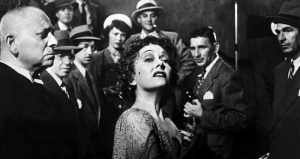
There is a distinct difference between personal obstacles an actor endures when portraying a character, compared with obstacles a character needs to overcome to achieve their goals. Actors need to understand their own insecurities and obstacles and work through them to become the best actors they can be.
From a very early age we get told by parents, church leaders, teachers, older siblings and/or family members what is right and wrong. In another words, we are being judged negatively or positively. This often creates anxiety because one doesn’t yet know as a young child how to navigate uncharted waters. This feeling can create an overwhelming sense self worry of not being good enough which leads to the feeling of rejection.
Many actors develop insecurities and issues which can elicit psychological barriers or obstacles in their ability to portray authentic characters.
Those feelings tend to penetrate deep into our psyche, conscious and subconscious. They often cause us to put up a protective wall in order to make us feel safe.
How ‘Walls’ Get in the Way of Performance
We build emotional and psychological walls so that we don’t have to feel the pain of not being good enough, or to avoid the feeling of rejection. Sometimes this pain can be such that we can stuff our feelings in a number of ways to avoid feeling vulnerable.
Addictions
Some people can stuff their emotions down with food, drugs or alcohol. Using substances or food can help one escape the pressure and stress from jobs, relationships or life in general.
It also gives temporary pleasure, which enables addiction. These addictions can lead to other problems which often leads to a downward spiral. Many A-list performers such as Amy Winehouse, Heath Ledger and Phillip Seymour Hoffman can attest too.
Some people can develop certain disorders, due to trauma or severe physical and emotional neglect. Narcissism is one psychological disorder where a characteristic is to build walls to so one doesn’t have to feel vulnerable to rejection.
Sometimes people with narcissism build walls so impenetrable that they live in their fantasy world. They have a sense of grandeur and invincibility. Many of our politicians, lawyers and of course performers have a degree of narcissism. Madonna is one such person.
The Narcissist Actor
If a student has a high degree of narcissism it becomes difficult to find their inner vulnerability. These people are terrified that they’ll be found out that they aren’t what they portray themselves to be. They seem to know ‘everything’ and therefore have difficulty letting go and revealing their vulnerability needed for acting.
Some performers with narsicissit personality disorder are high functioning, high status, well known individuals.
The Oxford online dictionary states narcissim as: selfishness, involving a sense of entitlement, a lack of empathy, and a need for admiration, as characterizing a personality type.
Many well known actors recognise that many people within the performance industry have a degree of narcissism, whether they are working in front of or behind the camera:
“I’d say it’s the one quality that unites everybody in the film industry, whether you’re an actor, a producer, a director, or a studio executive.
“You want people to look at you and love you and go, Oh, you’re wonderful.”
But, he continued, “It’s a nightmare. Narcissism is the part of my personality that I am the least proud of, and I certainly don’t like to see it highlighted in everybody else I meet.” Ben Affleck in The Creative Mind
When narcissism requires people to love your work or you are ‘nothing’ begets humiliation, disappointment and or the feeling of rejection. The very feelings most narcissistic people are trying to avoid.

Narcissism can be a virtue and a vice at the same time. When narcissistic behaviour works in theatre or on the screen, it can create a synergy and fireworks.
The movie What ever happened to Baby Jane, starred Hollywood’s most inspiring and enigmatic aging screen sirens Joan Crawford and Betty Davis. They played sisters who were in constant rivalry with each other, which wasn’t far from the truth in reality. Both actresses displayed a high degree of narcissistic disorder which in the end left a lot of bitterness and sadness from each other as actresses and their respective families.
Two narcissistic women working together can cause the screen to alight or become a complete flop. In this case the movie thrived and garnered a best Actress nomination for Davis for the follow years Oscars and in which rumour had it Crawford worked furiously behind the Academy scenes, to prevent Davis’s nomination from becoming a win.
“These two women were scene-stealers,” Beauchamp said. “You put two scene-stealers together — whoa, sparks are going to fly. Whose back is to what? What side are we showing?” (Director of What ever happened to Baby Jane?)
Some psychologists state that most people who go into show business are actually narcissistic to begin with rather than they develop narcissism as they get more famous. Dr Drew Pinsky is a celebrity psychologist who wrote a book on this phenomenon. People-Pleasers How Celebrity Narcissism is Seducing America.
The danger Dr Pinksly states is that when a person becomes very famous, the audience and in particular teenagers want to become just like them.
People Pleasers
A people pleaser is someone who tends to go against their own best judgements and agree when they don’t truly agree, they find they can’t say no easily to requests, they take on other peoples burdons, they adapt their personality to suit the situation at hand.
Their objective is to have the person of their desire to like and love them or to be accepted by them. Often these people are very agreeable, appear to be very friendly and happy.
Many children’s show presenters and gameshow hosts, fun reporters have a pleasing personality. These people can work especially well in presenting on screen as that can translate really well.
But these same trait can also work against them in acting, where their vulnerability is an absolute asset. Too often people pleasers find it difficult to reveal who they really are in case they aren’t loved or liked. It is a very similar to narcissism without the ego driving them.
It comes as a surprise when that certain happy go lucky person which ‘everyone likes’ turns on people, hurts themselves or someone else
Many people who are pleasers can find authentic acting difficult. Although they can change their spots with the situation at hand, which is a positive characteristic for acting, it’s not always in a genuine right for the moment reaction.
Sam Dylan from Let’s Queer Things Up states; To avoid conflict, negative emotions, and re-traumatization, people who “fawn” when triggered will go out of their way to mirror someone’s opinions and appease them in order to deescalate situations or potential issues.
This is so because they are so invested what others think of them. They feel the need to control the situation by anticipating what could happen and they lose insight into the authenticity of what is needed in the moment.
In another words they might overdo the acting, or they may allow their addictions to overtake their personalities needed for particular roles.
Depression and Acting
Depression hits millions people all over the world and is especially true within Hollywood. A-listers who’ve supposedly achieved their dreams only to find themselves empty at the end.
Brad Pitt is quoted as saying: “I was doing the same thing every night and numbing myself to sleep, the same routine. Couldn’t wait to get home and hide out. But that feeling of unease was growing and one night I just said, ‘This is a waste.’”
Although depression can prevent some people from pursuing their dreams or goals, it doesn’t have to completely control a person’s life. It all depends on the situation, ability to cope with challenges and sometimes luck.
Many people including stars live with depression and still tend to have a successful career. However some stars have notorious reputations for turning up late, under the influence or not showing up at all to rehearsals, shootings or performances.
Marilyn Monroe the ultimate people pleasing very sad and insecure actress is one such person who tried to please everyone, but often fell short due to anxiety and fear.
She was well known to late to acting classes, rehearsals and shooting of scenes. Marilyn often locked herself in her trailer for hours at a time. Sometimes she wouldn’t emerge at all.
Marilyn Monroe on her last movie Something’s Got to Give in which she never completed due to tardiness and anxiety attacks. This caused the production company to fire her due to the amount of money she was losing for the company.
Her chronic lateness and absences from the set, however—something even Strasberg couldn’t cure her of—caused her to be fired from the picture, which was never completed. Four months later, on August 5, 1962, she would be found dead from a drug overdose in her Brentwood home, an apparent suicide.
Of course there are many high functioning people who have depression and live very productive and often successful lives. People such as Wainona Rider, Catherine Zeta Jones, Dawyne Johnson, Angelina Jolie, Brad Pitt, Gwenith Paltrow, Kerry Washington to name a few.
Some celebrities beat depression with eating healthy, getting good sleep, limiting mind altering substances and getting good exercise. When people work on getting themselves out of a pit of depression, they often do so with good results.
Some people build up barriers which are quite aggressive where they lose their authenticity and vulnerability of their own personalities in a role. These people tend to dominate conversations and have a challenging personality. They have difficulty reading other actors or people around them. Again they are terrified of the vulnerability.
In another words the actor refuses to put themselves in positions where they can become vulnerable, so they use their personalIty as a gateway to prevent situations which challenge us.
Watchers and Pushers In Acting
Most people psychologically speaking, tend to fall into two categories. Watchers and Pushers. (Originally coined by New Zealand theater director David Coddington).
Pushers are less likely to use their vulnerability and are more likely to push their personalities forward. Often these types of personalities are mistakenly cast in major roles especially in major school productions and in amateur theater.
Many inexperienced and or unaware drama teachers or directors from high schools and similar institutions, confuse confidence for being right for a role. Instead, they should be looking at the psyche of the person to see if a personality would fit a role more closely.
Quite often the right person could be lurking in the chorus somewhere, but because their personalities aren’t forthright, they are overlooked. It is up to an astute director to find that actor which best suits a role.
Sometimes these actors have a shy disposition and don’t push themselves forward for roles they might best suit, and instead a much more confident pusher might land a role not truly suited for their personality.
What is also interesting to note, is that many pushers don’t realise or understand their psyche well enough to know if they are right for a role or not. But instead due to the personalities, which are often loud and domineering in some way. It is true in some cases that the squeaky wheel gets the oil.
A pusher is difficult to work with. Watchers on the other hand are much easier to work with as their energy tend to take in the energy of others and they flow that energy through themselves to others (when on stage).
If someone isn’t genuine with how they feel or pursue life, then they often compensate by pushing or manufacturing emotions.
Watchers in Acting
Most people navigate this world as watchers. They are able to observe what is around them and assess how to manoeuvre themselves more easily into a given situation. And they’re more likely to be able to tap into their vulnerability and utilise it on stage.
Watchers allow energy flow to come towards them and they utilise the energy and return it back to keep within the flow. Pushers on the other hand draw the energy towards them but they don’t get back. Hence loud acting with no sense of dynamics, flow, connection or adequate vulnerability. They tend to like to control situations and have difficulty reading others.
How Manufacturing Emotions Get in the Way
What might an amateur actor do when they literally have difficulty feeling emotions a character needs in a particular situation? The amateur dramatic, the inexperienced, or the actor whose tools are limited are more likely to manufacture, make up, embellish, or evoke emotions artificially.
This is especially true when they don’t have an intention, motivation or ask themselves what the character wants within the scene.
Some inexperienced actors may believe that they don’t have adequate life experiences that are required for the role, and they may feel that they have to embellish or evoke emotions in particular places within the script.

As a result an audience may not subconsciously or consciously accept the portrayal as fully authentic, or they may feel that something is off.
There is a danger with the amateur dramatic and inexperienced actor where they throw a lot of words around and don’t connect with the other actor on stage. (Pushers halt energy and don’t tend to give back). They become self aware and self conscious to a point where they are ineffective and at worst a ‘Ham actor.’
So how do we get over this artificial interpretation of portraying character on stage? There are a number of ways to do it but some are harder than others.
Acting Techniques To Aid the Inexperienced Actor
Magic If
The magic if is a Stanislavsky technique which requires the actor to draw on their own physical, emotional and psychological impulses in the moment.
The magic if allows the actor to utilise their psyche to imagine themselves experiencing what a character is experiencing by thinking what if ‘I was in the situation?’
With some actors, the Magic if,can work really well depending on the role at hand and the willingness for the actor to use his or her creative imagination.
Imagination
The use of the imagination and acting is similar to ‘The Magic If’ from Stanislavsky. The actor imagines the situation using the clues from their own prior knowledge, experiences and imagining authentic responses and reactions to action on the stage.
Good acting is the ability to connect strongly with ones motivations and objectives, in another words, what does the character want and how do they intend to get it.?
The character has a through-line or an overall objective which could be anything, from wanting to win the hand of a love interest. It could be the pursuit of money and power. It could be an object such as inheritance or a beautiful house or car. The objective is to do something (actions required) in order the achieve a desired outcome.
The actors such as Brando, De Niro, Streep, Curtis, Damon, Pitt, Poitie, Dench and Morgan are examples of very good acting. In most movies they absolutely have clear intentions and their actions are inline with their overall objectives. Poor acting comes from a place of unclear intentions, motivations and the ability to use actions to pursue goals.
It is not always the case that the movies these actors are in have fabulous scripts or storylines. They their acting is usually on point, due to their ability to know what they are doing.
Inexperienced actors more often than not, have difficulty the motivation, and objectives that they need in a role. They tend to walk blindly hoping it will turn out okay.
They may push their voice, physical actions and over do it. They can come across as over acting. It can be quite amusing to see actors overact a role, thinking they were amazing.
Over-emoting a Scene
So many times I have scene young, inexperienced actors in a role and they completely lose their emotions on stage. They cry and sob when the part calls on them to push against the pain. Instead they get completely lost in the emotions of the moment and the audience loses as a result.
The actor can derail the scene, play or show if they over-emote and lose it. It’s a form of self indulgence even though the actor feels as though they’ve given themselves and using their vulnerability. To a degree they have used their vulnerability, but at the same time they needed to be aware of the moment at hand and keep it together, but also to not feel sorry for themselves.
What the actor is thinking to themselves, is if I feel this and cry, the audience will love me for it because ‘I’ am totally feeling it. Surely the audience feels it too.
The audience may feel the same emotions the actor does, but get confused as to why they are crying, especially if they are over emoting. This is because the actor losing it on stage to the detriment of the scene at hand.
What the actor should be doing is playing against the emotion, like we normally would do. If we are on the spot and are feeling vulnerable, we will do anything to maintain our composure or keep ourselves from releasing the emotional pain we’re actually feeling. That is authentic, it’s what we would do.
As actors, that is what we need to do on stage and on screen. Play against the emotion we are feeling especially is particularly vulnerable scenes. It also allow the audience to work with the emotion and find it for themselves rather than have an actor ‘sell it to them.
Vulnerability
Vulnerability is The ability to feel and release emotions in circumstances which often make us build our walls. Using ones vulnerability in performance allows the actor to tap into their inner emotions, fears and self judgement in a relatively safe environment.
all very good actors have vulnerability on tap. This vulnerability if utilized appropriately can allow the audience to go through a cathartic experience.
Know Your Characters Overall Objectives
The obstacle is what stands in the way of the objective.
Super Objective Broad overall objective for a character that works throughout the play. Provides a through line and arc for the character.
I need love
I need to have power.
I want security.
I want to find the love of my life.
I want a family. I want peace.
When an actor knows their overall objective, they will find it much easier to achieve authenticity with a role.
What is a “need?” A need is stronger than a “want” and is usually the stronger choice because it creates more drive for an actor in a scene.
Objective Every scene has an “Objective”. It is what you want to get from the other person in the scene.
- I need you to worship me.
- I need you to love me.
- I need you to give me my power back.
- I desire validation.
- I need you to worship me
- I need you to inspire me
Strategies to Get Your Objective
We need strategies to achieve ones goals. They consist of the actions we need to use to get what we desire.
Good Examples
- To scold
- To taunt
- To seduce
- To scare
- To cheer up
- To bribe
- To bargain
- To flirt
- To corrupt
These active verbs are better to use than less active verbs. They allow the actors to have something solid to work with.
Time to get acting!

